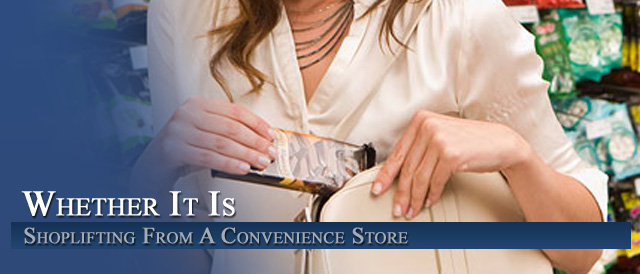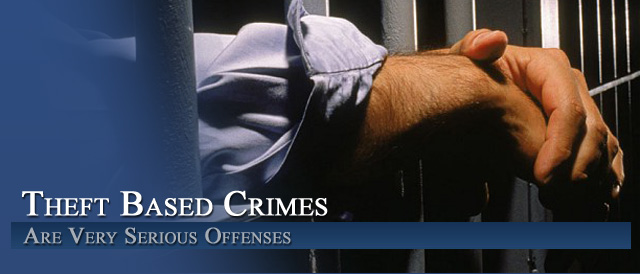




Colorado Theft Crimes – Questions and Answers About Colorado’s Money Laundering Laws – 18-5-309
By H. Michael Steinberg – Colorado Theft Crimes Criminal Defense Lawyer – Email the Author at [email protected]
 Colorado Theft Crimes – Questions and Answers About Colorado’s Money Laundering Laws – 18-5-309 – 2010 changes to Colorado’s money laundering laws have reclassified this crime as a crime of fraud and allows the state of Colorado to prosecute offenders under the Colorado Organized Crime Control Act – COCCA.
Colorado Theft Crimes – Questions and Answers About Colorado’s Money Laundering Laws – 18-5-309 – 2010 changes to Colorado’s money laundering laws have reclassified this crime as a crime of fraud and allows the state of Colorado to prosecute offenders under the Colorado Organized Crime Control Act – COCCA.
Money laundering involves taking money that has been obtained unlawfully and integrating it through lawful businesses so it appears to come from a lawful source. Money laundering cases can and usually do involve a number of complex and different financial transactions and multiple accounts.
The investigation and prosecution of money laundering cases invariably involve technological paper trails of money through varied financial transactions are completed entirely over the internet or using computers. These cases have changed dramatically over the past several decades. While they originally targeted “mob” or foreign drug cartels, today typical cases involve allegations being brought against business people who are accused of fraud, or against corporations whose employees allegedly have committed criminal acts.
What Exactly IS Money Laundering?
Money laundering involves taking criminal profits and moving them in an illegal manner. Alleged white collar criminals or agents acting on their behalf generate proceeds in the form of money or property as a result of committing a crime designated as a specified unlawful activity.
The white collar criminals will then “move” that money with the intent to disguise the nature, location, source, ownership, or control of the funds.
This is known as “concealment” money laundering. Compare this form to “promotion” money laundering where the scheme involves reinvesting the money in other criminal activities. Either criminal legal theory supports a money laundering charge.
More simply, money laundering is the active scheme of concealing or attempting to conceal the origin of money that came from criminal activity. The proceeds of crimes is often referred to as “dirty money,” while the money gained from so called legitimate sources is referred to “clean money.” Money laundering then derives from the act of making “dirty money” appear as if it was “clean money.”
How Is Money Laundering Investigated?
Unlike most crimes, law enforcement do not need to prove that the money launderer knew of the specific illegal activity from which the proceeds were generated. All that need be proven is that the person laundering the money believed it was “dirty.” Circumstantial evidence is often used to prove that the launderer received or handled the money in a way different from an innocent money transfer.
The three major divisions which will establish the crime of money laundering are:
Placement: This occurs when someone gets dirty money into a legal banking channel.
Layering: This involves breaking large amounts of money into smaller pieces that are much more difficult to detect.
Integration: This occurs when the dirty money is indecipherable from clean money and can then be spent in a normal fashion without attracting the attention of law enforcement.
Money Laundering – Conducting Financial Transactions with Intent to Promote Crime, §18-5-309
Here is an example of how the crime is actually charged in a recent case:
On or about and between August 15, 2010 and May 15, 2011, in the State of Colorado, [the defendant] unlawfully and feloniously, conducted or attempted to conduct a financial transaction that involved money or any other thing of value that the defendant knew or believed to be the proceeds, in any form, of a criminal offense, with the intent to promote the commission of a criminal offense; in violation of §18-5-309(1)(a)(I), C.R.S. (F3), and against the peace and dignity of the People of the State of Colorado.
The Impact Of the Colorado Drug Policy Task Force On Money Laundering
The Colorado Drug Policy Task Force examined the old money laundering law – C.R.S. 18-18-408 – and found that it limited money laundering activity to drug related crimes only. The new law allows money laundering to now cover any and all crime related money laundering activity – drug related or not.
Here is the Colorado Money Laundering Law:
Section 18-5-309, C.R.S., Money Laundering – Illegal Investments – Penalty – Definitions.
(1) A person commits money laundering if he or she:
(a) Conducts or attempts to conduct a financial transaction that involves money or any other thing of value that he or she knows or believes to be the proceeds, in any form of a criminal offense:
(I) With the intent to promote the commission of a criminal offense; or
(II) With knowledge or a belief that the transaction is designed in whole or in part to:
(A) Conceal or disguise the nature, location, source, ownership, or control of the proceeds of a criminal offense; or
(B) Avoid a transaction reporting requirement under federal law;
(b) Transports, transmits, or transfers a monetary instrument or moneys:
(I) With the intent to promote the commission of a criminal offense; or
(II) With knowledge or a belief that the monetary instrument or moneys represent the proceeds of a criminal offense and that the transportation, transmission, or transfer is designed, in whole or in part, to:
(A) Conceal or disguise the nature, location, source, ownership, or control of the proceeds of a criminal offense; or
(B) Avoid a transaction reporting requirement under federal law; or
(c) Intentionally conducts a financial transaction involving property that is represented to be the proceeds of a criminal offense, or involving property that the person knows or believes to have been used to conduct or facilitate a criminal offense, to:
(I) Promote the commission of a criminal offense;
(II) Conceal or disguise the nature, location, source, ownership, or control of property that the person believes to be the proceeds of a criminal offense; or
(III) Avoid a transaction reporting requirement under federal law.
(2) Money laundering is a Class 3 felony.(LINK)
[HMS – the following legal definitions apply to the law and must be understood to grasp the importance of the changes to the law:]
(3) As used in this section, unless the contest otherwise requires:
(a) “Conducts or attempts to conduct a financial transaction” includes, but is not limited to, initiating, concluding, or participating in the initiation or conclusion of a transaction.
(b) “Financial transaction” means a transaction involving:
(I) The movement of moneys by wire or other means;
(II) One or more monetary instruments;
(III) The transfer of title to any real property, vehicle, vessel, or aircraft; or
(IV) The use of a financial institution.
(c) “Monetary instrument” means:
(I) Coin or currency of the United States or any other country; a traveler’s check; a personal check; a bank check; a cashier’s check; a money order; a bank draft of any country; or gold, silver or platinum bullion or coins;
(II) An investment security or negotiable instrument in bearer form or in other form such that title passes upon delivery; or
(III) A gift card or other device that is the equivalent of money and can be used to obtain cash, property, or services.
(d) “Represent” includes, but is not limited to, the making of a representation by a peace officer, a federal officer, or another person acting at the direction of, or with the approval of, a peace officer or federal officer.
(e) “Transaction” includes a purchase, sale, loan, pledge, gift, transfer, delivery, or other disposition and, with respect to a financial institution, includes a deposit; a withdrawal; a transfer between accounts; an exchange of currency; a loan; an extension of credit; a purchase or sale of any stock, bond, certificate of deposit, or other monetary instrument; the use of a safe deposit box; or any other payment, transfer, or delivery by, through, or to a financial institution by whatever means.
Money Laundering is one of the most serious of the white collar crimes in Colorado but there may be a defense to the charge under your specific case facts
Questions and Answers About Colorado’s Money Laundering Laws – 18-5-309 – What Are Some Of The Possible Defenses for Money Laundering In Colorado?
Lack of Intent
Now that you understand the crime of Money Laundering it becomes obvious that a defendant’s lack of knowledge that the funds were dirty proceeds or were to be used to fund illegal is the main defense asserted in these cases. Proof of a lack of intent to conceal or disguise the nature of certain funds or influence any financial documents is the one of the primary keys to any successful defense to money laundering charges.
“Innocent Victim” Employee Or Partner
Another defense is the situation where the suspect is merely an employee of a business, or a non-involved partner who is basically “duped” into managing the business that generates the kind of proceeds that are the result of illegal activity. Evidence in support of this defense can come from many sources – but the most likely source of the evidence for this defense will originate in the company’s financial statements or accounting records. These records may prove that the material misrepresentation or omissions were committed by someone else other than the defendant.
The “Tricked” Partner
At times one business partner can trick another partner to “sign off” on certain loan documents or tax returns without disclosing to the defendant that the information contained therein is false or misleading. Signing off as a result of a trust based relationship is NOT the kind of evidence that supports the crime of money laundering. The prosecution has to prove that a defendant actually knew about the source of the funds.
The Suspect’s Good Character, State Of Mind, Lack of Control or Authority
One way to provide support for a lack of knowledge defense is to establish the defendant’s state of mind and lack of knowledge of the criminal acts going on around him or her – is through proof of the defendant’s good character and reputation for honesty. Another is to establish the defendant’s lack of control and or knowledge of the company’s finances.
Another way to support this defense theory is to focus a jury on the partner’s bad character and to shift the evidence so that it targets the real criminal – the “criminal” partner.
The Need For An Expert “Forensic” Accountant
Tracing the funds using a forensic accountant is another way to defend against these cases. Establishing doubt in the minds of the jury by proving that the specific funds in question did not fund, nor were the proceeds of, any racketeering activity is an excellent way to defend against money laundering charges.
Summary of the above defenses and other common defenses to a Colorado money laundering – these include:
Lack of intent – to disguise the source of the money.
Clean Money – Establishing that the money in question was actually “clean” and not actually gained by illegal acts.
Duress – in this defense – the accused believes that his person or his family were in danger of harm if he did not launder the money.
Attacking the elements of the crime – here the lawyer attacks the sufficiency of the evidence and argues that there was insufficient evidence to prove all elements of the crime.
Questions and Answers About Colorado’s Money Laundering Laws – 18-5-309
If you are under investigation in Colorado for Money Laundering, or if you have already been charged, given the complexity of these cases – it is important to take decisive action to protect your rights. Do not delay your decision to talk to an experienced Colorado criminal defense lawyer familiar with white collar crimes. Call the law firm of H. Michael Steinberg
ABOUT THE AUTHOR: H. Michael Steinberg – Email The Author – A Denver Colorado Theft Crimes Criminal Defense Lawyer – or call his office at 303-627-7777 during business hours – or call his cell if you cannot wait and need his immediate assistance – 720-220-2277.
H. Michael Steinberg, is a Denver, Colorado criminal defense lawyer with over 40 years of day to day courtroom experience – specializing in Colorado Criminal Law along the Front Range. Call him if you have any questions about …Questions and Answers About Colorado’s Money Laundering Laws – 18-5-309.
Other Articles of Interest:
- A Denver Colorado Criminal Lawyer Warns – NEVER Agree To Speak To The Police – But If You Do…
- Colorado Theft Crimes 18-4-401
- Colorado Criminal Theft Laws – Understanding The Nature Of Embezzlement Crimes
- Understanding The Colorado Laws Of Embezzlement, Theft and Larceny Part I of II
- 2014 Criminal Court Deadlines Under Colorado Criminal Law – When You Have To File – What You Have To Do












